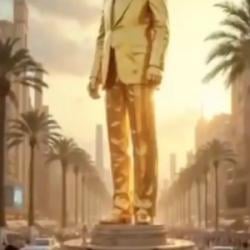Still, YHWH announces with unforgettable clarity that the old covenant, the one shared and trumpeted at Sinai, has failed, precisely because its human recipients again and again have shattered it. Just like the enraged Moses, gazing at the unspeakable actions of the calf-builders at the base of the sacred mountain, the Torah of YHWH, given to the chosen people out of YHWH's deep love for them, has simply not worked, neither as a guide to human action nor as a curb on human behavior. So YHWH has once again to go back to the drawing board to help the chosen become what YHWH wants them to be.
"This is the covenant that I will cut with Israel after those days, says YHWH: I will place my Torah inside them; right on their hearts I will write it. I will be for them God, and they will be my people" (Jer. 31:33). Remember that in Hebrew anthropology, the heart is the place of will and intelligence, so YHWH will take that organ and use it for a divine blackboard (or computer screen to update the metaphor) and write the Torah directly on each one. This marvelous metaphor is offered both in promise and with a measure of despair. Our hope is that YHWH will finally act directly for each one of us, performing massive divine surgery on us to ensure that at last we will understand just what YHWH desires from us.
Yet, the despair appears in the next lines. "No longer will each one teach another, or say to one another, 'Know YHWH!' for they shall all know me, from the least to the greatest, says YHWH" (Jer.
And one more thing. We must not imagine that all of our hard work and faithful labor will usher in the rule of God. No! Only God will do that; it does not lie on our shoulders to save our people; that job has already been accomplished. Jeremiah's famous words are thus hope and warning; do the work of God but allow God finally to reap God's own harvest.





